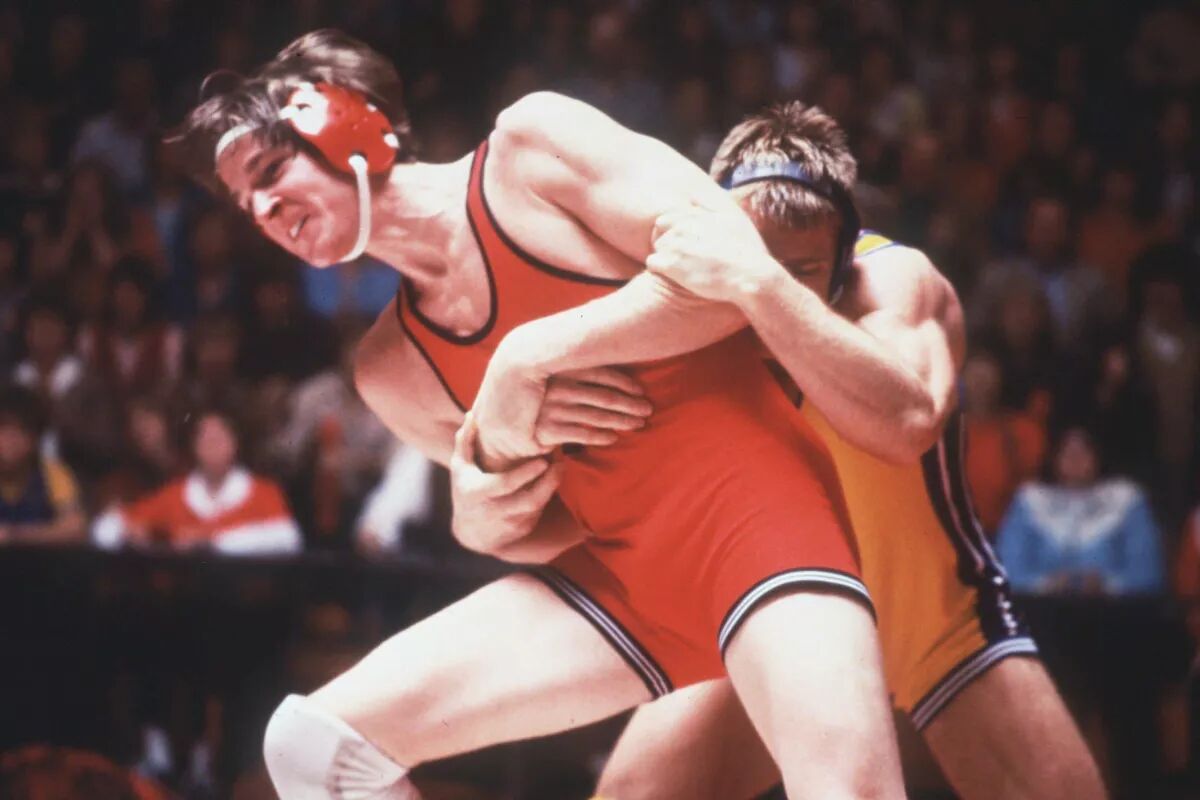
Welcome back to our queer film retrospective, “A Gay Old Time.” In this week’s column, we revisit 1985’s coming-of-age sports story Vision Quest—remembered for its homoeroticism and its major pop star cameo.
What is the line between queerness and homoeroticism? Can a movie—or any piece of media for that matter—be considered queer if it’s filled with imagery blatantly aimed at the gay male gaze, but lacks any overt queer characters or storylines? Can we claim something that obviously appeals to our desires and interests, but doesn’t include us?
Are sweaty naked athletes and a Madonna cameo enough?
This week we’re diving into the 1985 cult sports drama Vision Quest, a movie that attempts to address all these questions—with some answers more satisfying and concrete than others. It’s a movie that screams 1980s in almost every regard: the costume-y fashion choices, the needle drops full of synths, the blatant sexuality that dances between provocative and problematic, and a shameless display of masculinity that is homoerotic and homophobic, usually at the same time.
The Set-Up
Vision Quest follows high schooler Louden Swain (a very young and very in-shape Matthew Modine), who is part of the school’s wrestling team and has set himself the goal that will give meaning to his life: he’s going to lose enough weight so he can fight two categories under, and go against the best wrestler in the area.
He calls this the titular “vision quest”, which soon turns into an unhealthy obsession where he alienates his teammates, coaches, and family. At the same time, he falls in love with a hitchhiker named Carla (Linda Fiorentino), who makes him refocus his unrealistic weight goals, and reconsider what’s really important in his life.
The film follows a pretty traditional coming-of-age sports narrative, where the protagonist: thinks that excelling in the sport (high school wrestling, in this case) will be what finally gives him and his life value, then goes through physical and emotional exhaustion to get it—until something or someone outside makes him revalue it all.
The love story between the ingénue and the older girl that knows better is also borderline cliché with the times, including a very-poorly aged moment where Louden forces himself onto Carla, only for her to brush it off later because of his good heart and intentions.
Body Image
However, what stands out most about this movie, and what makes it so particularly compelling for this column, is the obsession it has with the male body.
The central tension of Vision Quest, the goal Louden has set for himself, all revolves around pushing his body and self-image to the limit. He has to lose a certain number of pounds; that means being on a diet, and exercising whenever and wherever he has a chance. Most of the conversations between him and his teammates are about exercise routines and meals and the narrative stakes hinge on the numbers on a scale.
It’s rare to see a high school movie that centers male weight loss and body image like this. It addresses the pitfalls and health hazards that Louden is putting himself in, and there’s almost a much more compelling and resonant movie hidden in there that entirely focuses on the emotional weight and consequences that are put on young male athletes to look a certain way.
Jock For Jock
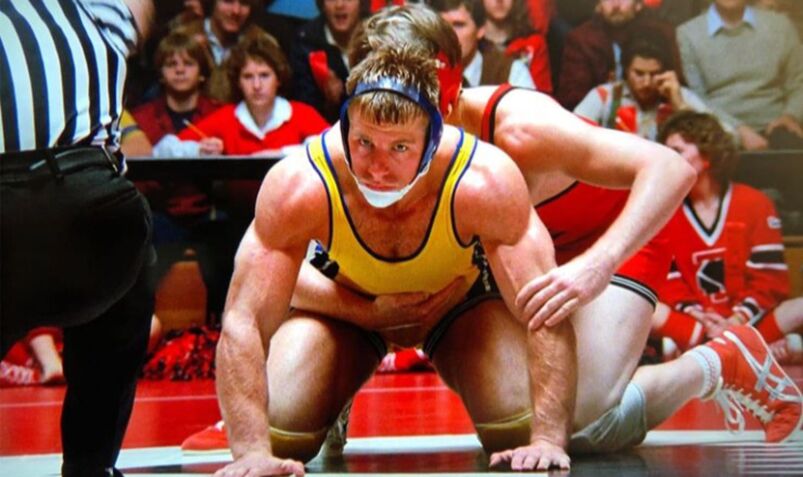
Beyond what the story shows about the male protagonist’s relationship and journey with his own body, the movie at times feels like just a montage of bare torsos, muscles glistening with sweat, and prominent bulges in singlets. It’s not unlike the videos playing on a loop at a gay sports bar on any given weekend.
The wrestling sequences, the scenes at the locker rooms, and the moments where Louden is working out are nothing less than an ode to the male body: how the camera lingers on it, the angles it chooses to showcase, and the sheer amount of screen time the film devotes to it. It’s hard to imagine that the intention wasn’t to bring desire out of the audience. And what audience is most likely to lust after these young jocks?
But there’s never a hint of homosexuality between these boys. At one point, Louden off-handedly mentions that another man tried to “grab his bulge” and he retreated in panic. The characters themselves are full of the brand of “gay panic” masculinity that was characteristic at the time—even if their actions and how they’re depicted are giving the completely opposite message.
Who’s That Girl?
On top of that, and to make mattress even more subtly queer, Vision Quest also marks the film debut of Madonna. She only appears in one scene as a performer in a nightclub that Louden attends in search of his coach. But she is featured front and center, in her iconic and unmistakable uniform of tulle, shirt over the shoulder, and arms covered in bracelets. She performs a mashup of “Gambler” and “Crazy For You”, and the latter continues to play several times throughout.
In fact, “Crazy For You” was recorded specifically for the film, and in some territories, it became the movie’s official title to tie the single even more closely to it. It marked the beginning of Madonna’s lengthy movie career, both as an actress and a featured performer in the soundtrack.
Down For The Count
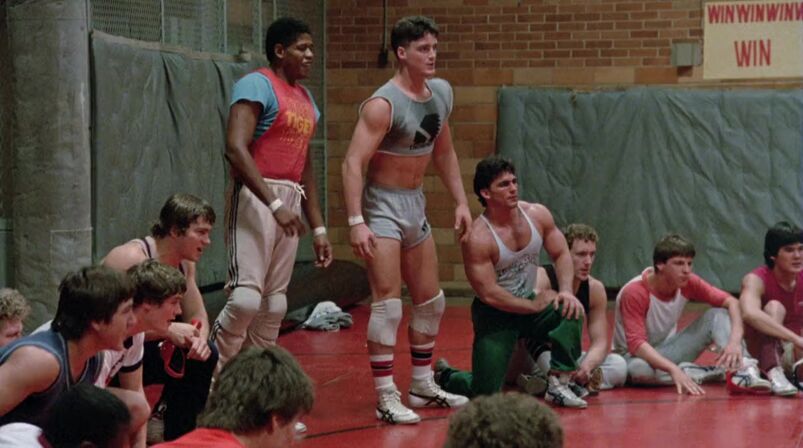
But to return to the question we posed… could Vision Quest be considered part of the queer cinema canon? As for contributing meaningful or impactful representation of queer storylines and characters, the movie does little of that, and even perpetuates some harmful stereotypes and ideas about masculinity.
However, it cannot be understated how much the movie borrows from queer-adjacent (or shall we call it, queer-pleasing) imagery and archetypes: the hot, sweaty jocks and their exposed muscles and acts of physical intimacy in the name of sportsmanship. Although not explicitly queer, there is a queer lens to it.
At the very least, it almost certainly helped or accelerated a gay awakening to some unexpected boys watching in the ’80s. And those movies always hold a special, though complicated place in our history.
Vision Quest is now streaming on The Roku Channel & Tubi, and is available for digital rental/purchase via Amazon Prime Video, AppleTV, Google Play, Vudu, and YouTube TV.
Related:
Get in the ring with these 10 gay wrestling stories told on screen–from the heroic to the homoerotic
Is it hot in here, or is it just this spandex singlet?


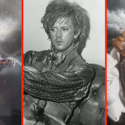

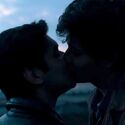




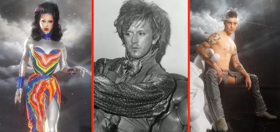


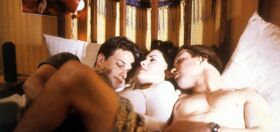
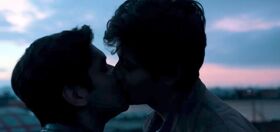





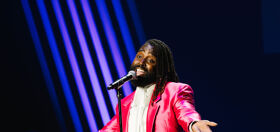
abfab
That’s hot! Thanks Q! That dude is/was a muscle BEAST. No, not Madonna.
Man About Town
A new entry in the Freudian slip typo dept: “to make mattress even more subtly queer”
Nice one, Jorge!
bsg1967
loved this back in the day on vhs as a closeted teen in Australia it was both entertaining and hot great soundtrack from madge and tangerine dream